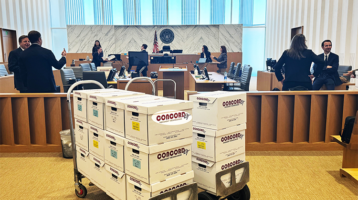Don’t take chances, avoid sanctions & hire an ediscovery consultant
Brown v. FPI Mgmt, No. 4:11-cv-5414 YGR (KAW), 2013 U.S. Dist. LEXIS 1040 (N.D. Cal. Jan. 3, 2013)The Federal Rules of Civil Procedure were updated almost a decade ago to include rules regarding the production of ESI, but the case law involving the discovery of ESI is still maturing. Many litigants producing documents in litigation are still trying the old “my system isn’t good enough to find the documents” defense. However the Courts are starting to become wary of such defenses and in the above captioned matter, defendant producer’s argument that producing requested documents was unduly burdensome was rejected:
Defendant argued that it would be difficult to find responsive documents because 1) the terms “Community Director” and “Portfolio Manager” are commonly used in email signatures, 2) the term “promotion” is commonly used throughout emails, and 3) FPI’s email system is not capable of conducting advanced searches. But the Court rejected the argument because Defendant could have used other search terms, or simply sort through the emails, to find the responsive documents. By interviewing its employees or by consulting its own records, Defendant ought to be able to narrow its searches by the persons involved and the approximate dates. Although Defendant may not know how to efficiently conduct a search of its email system, that does not relieve it of its discovery obligations. It may need to utilize the assistance of IT personnel or obtain a consultant to help conduct the search.
Defendant did not provide the Court with an estimate of the cost or the amount of time needed for discovery, nor did it provide a declaration of an e-discovery expert to substantiate its assertion that the documents were not reasonably accessible. Accordingly, the Court held that Defendant did not make a good-faith effort to produce responsive documents.
The court acknowledged that defendants might still find that the documents were not reasonably accessible. But if that were the case, the court could still order sampling of the emails at issue, or it could permit plaintiffs to conduct discovery on the costs and burdens of providing the emails, or plaintiffs might have to share some of the costs.
Call today (800) 246-7881


